Protein is one of the most important nutrients. It keeps your muscles working properly and can even boost metabolism, improving weight loss.
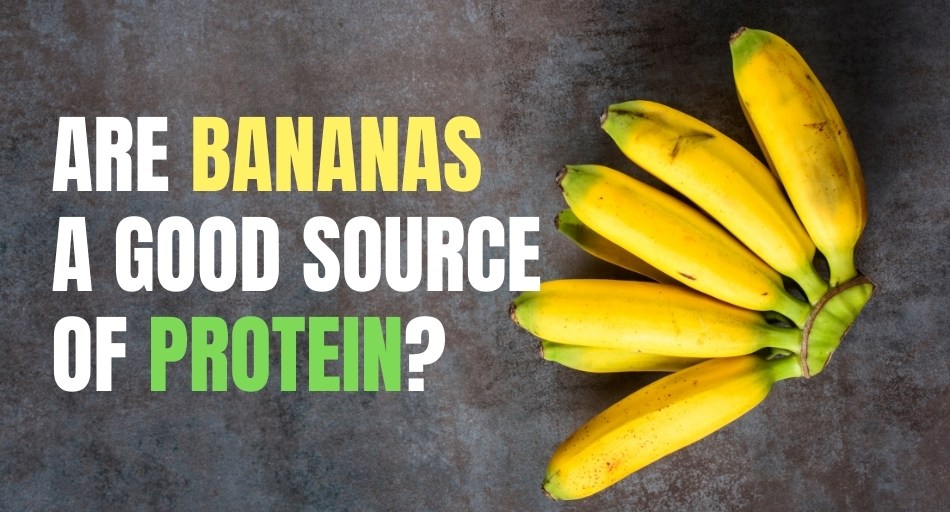
Most protein-rich foods are animal products, but there are some plant-based alternatives for those who don’t eat meat.
While most fruits aren’t too rich in protein, you can find some good choices that pack a decent dose of this nutrient.
For example, let’s look at bananas. Are they a good source of protein?
Table of Contents
Are bananas a good source of protein?
Unfortunately, bananas don’t provide you with a lot of protein in a single serving. They do contain this nutrient, but you’d have to eat a lot of bananas to get any significant amount of protein.
On the bright side, bananas are loaded with vitamins, minerals, and plant compounds that improve your health and reduce your risk of various health conditions. They’re also rich in fiber, so you can reap a lot of benefits even if not from protein.
How much protein is in bananas?
One medium banana contains only about 1.3 g of protein, which corresponds to just 3% of your daily need for this nutrient.
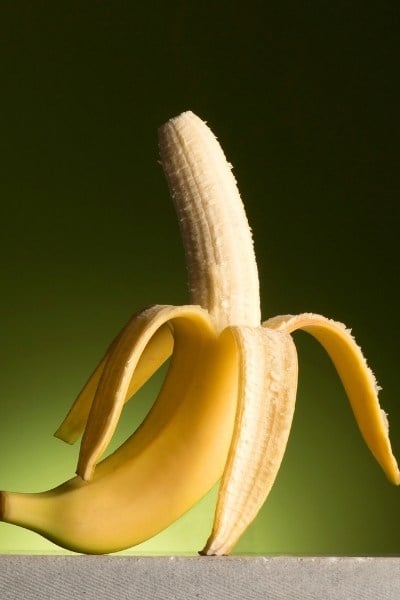
As you can see, it’s not a lot. So, it’s important to include other high-protein foods to ensure you’re getting enough of this nutrient each day.
Even if you were to consume larger bananas, you’d still not get enough protein just from bananas.
If you want to use bananas as your protein source, though, you can include them in smoothies with whole-fat milk.
That way, you can get the nutrients from bananas and increase the protein content.
Are bananas good for you?
Most calories in bananas come from carbohydrates – both sugar and fiber. One medium-sized banana contains 14.4 g of sugar and 3.1 g of fiber.
Because of that, eating bananas in moderation doesn’t tend to cause spikes in your blood sugar levels.
The fiber in bananas also helps soak up excess stomach acid, reducing the likelihood of heartburn and other acid reflux symptoms after eating.
So, if you suffer from acid reflux or GERD, eating bananas can be helpful.
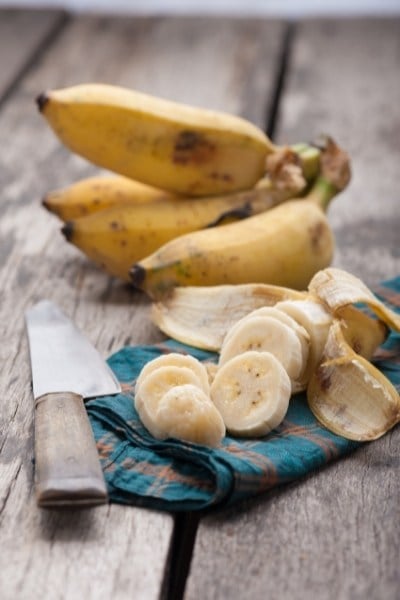
Eating bananas can increase your intake of manganese as well. This mineral is crucial for the formation of connective tissues, bones, blood clotting factors, and sex hormones.
What’s more, it’s necessary for normal brain and nerve function. So, make sure to get enough of it.
Bananas are also an especially good source of vitamin B6, providing you with 22% of your daily need for this micronutrient.
Getting enough vitamin B6 can improve your mood and reduce symptoms of depression.
Vitamin B6 can also ease nausea and other unpleasant symptoms during pregnancy, which is why it’s often included in prenatal supplements.
Another micronutrient that bananas contain a lot of is potassium. Bananas are considered a high-potassium fruit, as they provide you with 422 mg of this mineral in a single fruit.
Potassium is a very important mineral because it offsets the negative effects of sodium on your blood pressure levels.
Because of that, it reduces your risk of strokes and heart attacks. Potassium is also an electrolyte, which means that it helps you stay hydrated.
This mineral is also important for kidney health. This is because potassium lowers your blood pressure and slows down the progression of kidney disease.
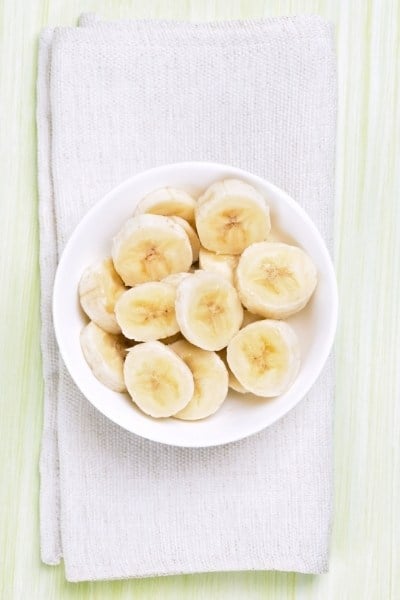
But make sure you can consume high-potassium foods, as some people may suffer from potassium sensitivity.
For others, though, choosing bananas is a good idea to get more potassium.
Just like other fruits, bananas are full of powerful plant compounds, namely antioxidants.
These special compounds help flush out free radicals from your body, which prevents oxidative damage to your cells.
Because of that, you’re at a lower risk of developing various chronic conditions like heart disease or cancer.
Can you get enough protein from bananas?
Most people need around 46-56 g of protein each day. This amount depends on your health, dietary needs, and activity level, so it can be higher or lower than that.
Since a single banana provides you with less than 5% of your daily need for protein, this fruit is not a great source of this nutrient.
You’d have to consume a lot of bananas to get any decent amount of protein.
While you could get more protein from bananas by eating more of them, you have to keep in mind that this fruit is high in sugar.
So, while you could load up on protein, you would also get a lot of sugar, which is bad for you.
As a result, it’s best to choose other high-protein alternatives to reach your dietary need for this nutrient.
Is banana juice a good source of protein?

One cup of banana juice contains around 5.9 g of protein, which is a lot more than one banana. Because of that, you can get a lot more protein by drinking banana juice or nectar than by eating just one banana.
While banana juice is a good source of protein, it’s also very high in sugar, packing 20 g of this nutrient in one cup.
Too much sugar isn’t good for you, so it’s best to avoid sugary drinks or dilute them with some water.
Is banana bread a good source of protein?
One average slice of banana bread (commercially prepared) provides you with 2.6 g of protein. As you can see, it’s also not a particularly good source of this nutrient.
Banana bread is also rather high in calories and contains trace amounts of important vitamins and minerals.
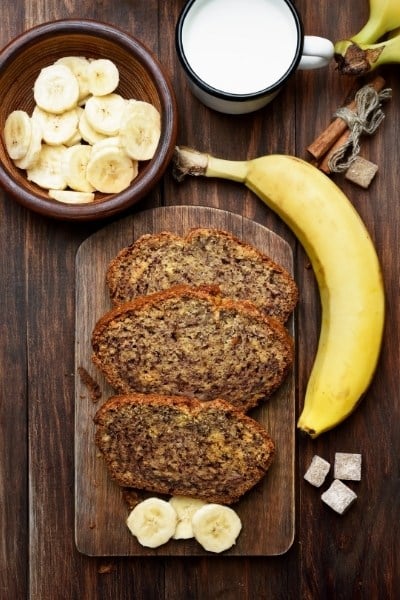
This doesn’t mean that you should completely eliminate it from your diet, though – just make sure to practice moderation.
Conclusion
Like most fruits, bananas aren’t a particularly good source of protein. They do contain some of this nutrient, but it’s not nearly enough to fulfill your daily need.
So, make sure to include other protein-rich foods in your diet.
Even though bananas aren’t high in protein, they can still be a healthy addition to your diet.
This fruit contains a lot of vitamins and minerals like vitamin C, vitamin B6, potassium, and manganese. So, it’s a great idea to indulge in some bananas every once in a while.
Sources: Nutrition Data and PMC
